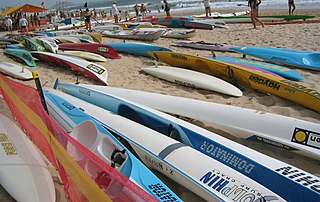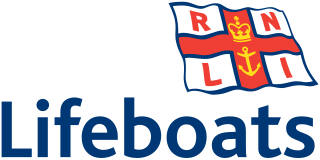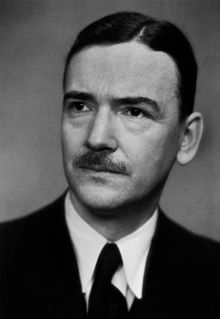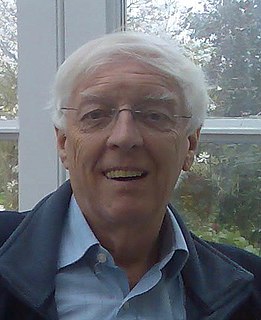Related Research Articles

John James Rickard Macleod was a Scottish biochemist and physiologist. He devoted his career to diverse topics in physiology and biochemistry, but was chiefly interested in carbohydrate metabolism. He is noted for his role in the discovery and isolation of insulin during his tenure as a lecturer at the University of Toronto, for which he and Frederick Banting received the 1923 Nobel prize in Physiology or Medicine. Awarding the prize to Macleod was controversial at the time, because according to Banting's version of events, Macleod's role in the discovery was negligible. It was not until decades after the events that an independent review acknowledged a far greater role than was attributed to him at first.

Surf lifesaving is a multifaceted movement that comprises key aspects of voluntary lifeguard services and competitive surf sport. Originating in early 20th century Australia, the movement has expanded globally to other countries including New Zealand, Ireland, South Africa, the United Kingdom. Surf lifesavers in Australia are colloquially known as "Clubbies".

A lifeguard is a rescuer who supervises the safety and rescue of swimmers, surfers, and other water sports participants such as in a swimming pool, water park, beach, spa, river and lake. Lifeguards are trained in swimming and CPR/AED first aid, certified in water rescue using a variety of aids and equipment depending on requirements of their particular venue. In some areas, lifeguards are part of the emergency services system to incidents and in some communities, lifeguards may function as the primary EMS provider.

Sir Alan Lloyd Hodgkin was an English physiologist and biophysicist who shared the 1963 Nobel Prize in Physiology or Medicine with Andrew Huxley and John Eccles.

The Royal National Lifeboat Institution (RNLI) is the largest charity that saves lives at sea around the coasts of the United Kingdom, the Republic of Ireland, the Channel Islands, and the Isle of Man, as well as on some inland waterways. It is one of several lifeboat services operating in the same area.

Ulf Svante von Euler was a Swedish physiologist and pharmacologist. He shared the Nobel Prize in Physiology or Medicine in 1970 for his work on neurotransmitters.
G. Balakrish Nair is an Indian microbiologist. At present, he is the Ag. Regional Adviser, Research Policy and Cooperation Unit, Department of Communicable Diseases, World Health Organization. Before joining WHO, he was the Executive Director of Translational Health Science and Technology Institute (THSTI), Faridabad, NCR, India. Before joining THSTI, he was working in NICED as the Director. He has also served as the director of Laboratory Sciences Division at the International Center for Diarrhoeal Diseases Research,, Dhaka, Bangladesh.
The Royal Life Saving Society UK is a drowning prevention charity founded in 1891 in the UK. It has had Royal Patronage since 1904.

Denis Noble is a British biologist who held the Burdon Sanderson Chair of Cardiovascular Physiology at the University of Oxford from 1984 to 2004 and was appointed Professor Emeritus and co-Director of Computational Physiology. He is one of the pioneers of systems biology and developed the first viable mathematical model of the working heart in 1960.

The United States Lifesaving Association is a nonprofit professional association of beach lifeguards and open water rescuers in the United States.

The Royal Life Saving Society Canada operates throughout Canada as the Lifesaving Society. The Lifesaving Society is a national, volunteer and charitable organization and registered charity composed of 10 provincial/territorial Branches, tens of thousands of individual members, and over 4,000 affiliated swimming pools, waterfronts, schools and clubs. The Society works to prevent drowning and water-related injury through its training programs, Water Smart public education, drowning prevention research, safety management and lifesaving sport.

Surf Life Saving Australia (SLSA) is an Australian not-for-profit community organisation that promotes water safety and provides surf rescue services.

Lifesaving is the act involving rescue, resuscitation and first aid. It often refers to water safety and aquatic rescue; however, it could include ice rescue, flood and river rescue, swimming pool rescue and other emergency medical services. Lifesaving also refers to sport where lifesavers compete based on skills, speed and teamwork. Lifesaving activities specialized in oceanic environment is called surf lifesaving or coastal lifesaving.
Arthur (Art) J. Bachrach was an American psychologist and administrator, who was Professor and Chairman of the Department of Psychology at Arizona State University, and Director of the Environmental Stress Program and Chair of Psychophysiology at the Naval Medical Research Institute at the Naval Medical Center in Bethesda.

Experimental Physiology is a monthly peer-reviewed scientific journal published by Wiley-Blackwell on behalf of The Physiological Society. According to the Journal Citation Reports, its 2018 impact factor is 2.624 It covers all areas of physiology, especially work that deals with both physiological and pathophysiological questions that investigate gene/protein function using molecular, cellular, and whole-animal approaches. All articles become freely accessible 12 months after publication. The editor-in-chief is Mike Tipton.
A rescue lifeboat is a boat rescue craft which is used to attend a vessel in distress, or its survivors, to rescue crew and passengers. It can be hand pulled, sail powered or powered by an engine. Lifeboats may be rigid, inflatable or rigid-inflatable combination-hulled vessels.
Krešimir Krnjević was a Canadian-British neurophysiologist.
Elspeth McLachlan, an Australian neuroscientist, is a world authority on neural pathways within the autonomic nervous system. Her work has included detailed analyses of transmission in autonomic ganglia to studies of the organisation of autonomic nervous pathways and their disorder in pathological states, particularly injuries to peripheral nerves and the spinal cord.

John Haven Coote was a British physiologist. He was the Bowman Professor of Physiology (1983–2003) then Professor Emeritus at the University of Birmingham. He was a Visiting Professor at University of Leicester and a Consultant in Applied Physiology, Royal Air Force Institute of Aviation Medicine.
Eugenie Ruth Lumbers is an Australian medical researcher whose work has focused on the role of the renin-angiotensin system in fetal development and in women's health.
References
- 1 2 "Department-of-sport-and-exercise-science". University of Portsmouth.
- ↑ "Editorial Board". Experimental Physiology. 102 (10): 1332–1334. 2017. doi: 10.1113/expphysiol.2017.1871 .
- 1 2 "Professor Mike Tipton". Speakers for Schools. Retrieved 13 October 2017.CS1 maint: discouraged parameter (link)
- ↑ "Coastal Deaths". RNLI. Retrieved 13 October 2017.CS1 maint: discouraged parameter (link)
- ↑ Tipton, M.J. (16 October 2015). "Environmental extremes: origins, consequences and amelioration in humans". Experimental Physiology. 101 (1): 1–14. doi: 10.1113/EP085362 . PMID 26391095.
- ↑ "Mike Tipton MBE awarded Ireland Medal by The Lifesaving Foundation". The Physiological Society. Retrieved 25 May 2021.
- ↑ "BBC Radio 4 - The Life Scientific, Mike Tipton on how our bodies respond to extreme conditions". BBC. Retrieved 25 May 2021.
- ↑ Tipton, Mike; Golden, Frank (January 2002). Essentials of Sea Survival. Human Kinetics. ISBN 978-0-7360-0215-8.
- ↑ Tipton, Mike; Wooler, Adam (January 2016). The Science of Beach Lifeguarding. CRC Press. ISBN 9781482245974.